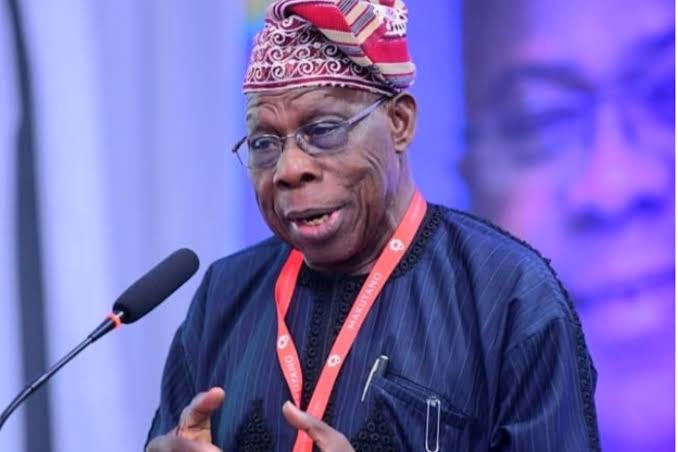
Former Nigerian President Olusegun Obasanjo has once again drawn attention for his scathing critique of Nigeria’s leadership and governance at the Chinua Achebe Leadership Forum at Yale University. Using the platform, Obasanjo criticized the administrations of President Muhammadu Buhari, whom he dubbed “Baba Go Slow,” and President Bola Tinubu, referring to him with the controversial moniker “Emilokan.” He also described Nigeria as a failing state, igniting a heated debate on his own legacy and the validity of his observations.
Legacy of Leadership: A Divisive Record
Obasanjo’s remarks come amidst growing scrutiny of his own tenure as Nigeria’s leader. Critics have highlighted what they perceive as hypocrisy in his critique, pointing to his administration’s controversial record on corruption, governance, and constitutional adherence. During his presidency, several governors were unconstitutionally impeached, and state-sponsored political crises, such as the abduction of Governor Chris Ngige in Anambra State, marred his leadership.
Obasanjo’s relationship with Chinua Achebe also complicates his use of the Achebe Forum to discuss leadership ideals. In 2004, Achebe famously rejected a national honor from Obasanjo’s administration, citing rampant corruption, abuse of power, and poor governance under his leadership.
Missed Opportunities in Governance
While Obasanjo often portrays himself as a champion of economic reform, his critics argue that his administration failed to address fundamental issues such as infrastructure, education, and energy. Despite earning significant oil revenues during his tenure, federal roads, refineries, and educational institutions reportedly languished in disrepair. Notably, Obasanjo’s administration spent $16 billion on electricity projects with little to show for it, prompting probes into the failed initiatives.
Critics also point to his controversial privatization program, which allegedly saw state assets sold at undervalued prices to cronies, and his failed third-term bid as evidence of self-serving leadership.
Counterpoints from Recent Administrations
Supporters of recent administrations argue that Obasanjo’s leadership left many of the challenges Nigeria faces today unresolved. The administration of President Muhammadu Buhari is credited with significant investments in defense, including acquiring modern fighter jets and naval ships. President Tinubu’s focus on gas development, which Obasanjo himself admitted neglecting, is also seen as a forward-thinking initiative to diversify Nigeria’s economy.
Call for Constructive Engagement
As Nigeria grapples with economic challenges, insecurity, and governance reform, many believe that elder statesmen like Obasanjo should adopt a more constructive tone. Analysts suggest that rather than casting blame, Obasanjo could leverage his experience to support ongoing efforts to address the nation’s challenges.
Obasanjo’s remarks have reignited discussions on the responsibilities of former leaders in shaping the future of the country. While his critiques may hold some merit, the shadow of his own leadership record continues to loom large over his public statements.
